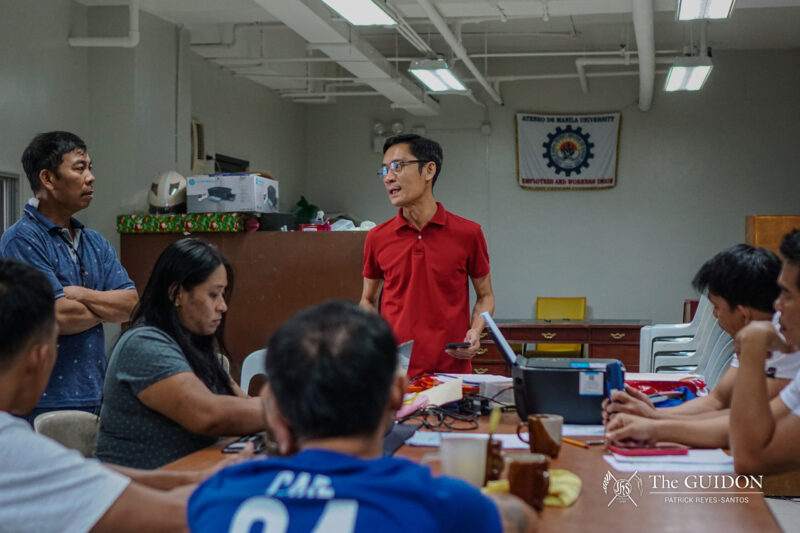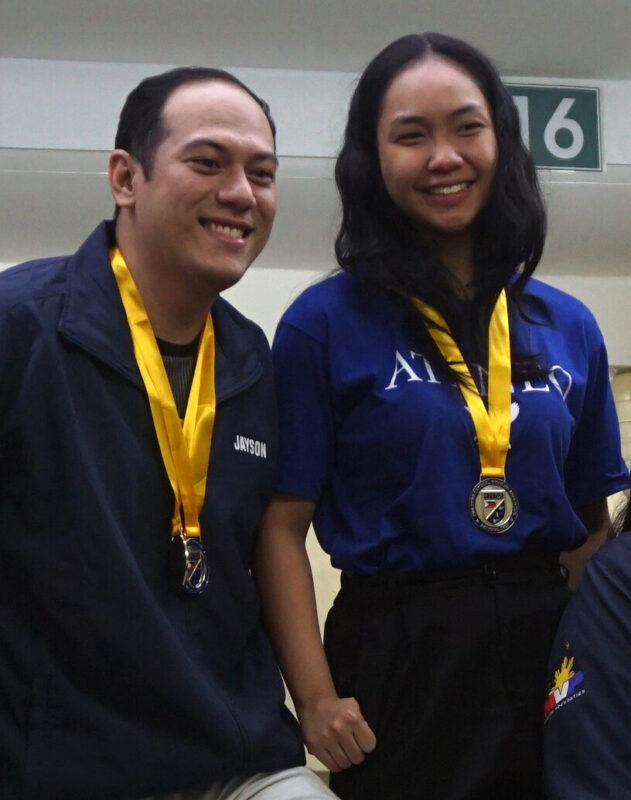THE ATENEO Economics Association (AEA) hosted a forum entitled “KamalAEAn 2013: Bangsamoro and the Economics of Peace” held at the Ricardo and Dr. Rosita Leong Hall auditorium last September 6.
AEA organized the forum in cooperation with the Office of the Dean of the School of Social Sciences, the Economics Department and the Gaston Z. Ortigas Peace Institute.
The Gaston Z. Ortigas Peace Institute is an organization of peace advocates, located within the Ateneo campus.
The forum speakers were the following: Atty. Beatriz Bayot from the Government Negotiating Panel, Atty. Laisa Alamia, the executive secretary to the Autonomous Region in Muslim Mindanao (ARMM), and former President Fidel V. Ramos.
The event was made to commemorate the 17th anniversary of the signing of a peace agreement between the Moro National Liberation Front (MNLF) and the Philippine government, ending the rebellion of the MNLF, which was signed on September 2, 1996
Last October 15, 2012, the Philippine government and the MILF signed a framework of agreement that will give way to a new autonomous political entity, the “Bangsamoro,” that will replace the ARMM.
According to an article published in the September 2013 issue of The GUIDON, the MILF is a separatist group who distanced itself from the MNLF in a sign of protest after “expressing dissatisfaction with the 1976 Tripoli Agreement, which established the [ARMM].”
Problems with the Bangsamoro
The main question discussed during the forum was, “With the creation of a Bangsamoro political entity in Muslim Mindanao, are we finally approaching the solution to what historians have called the ‘Moro problem?’”
Alamia, who was the first to speak during the forum, enumerated some of the factors that led majority of the Philippine population to deem the ARMM a “failed experiment.”
“The human development index indicate that ARMM has the worst human development indicators in the country,” she said, adding that Filipinos are generally aware that the conflict abounds in the area.
Alamia further said that there is an “absence in the rule of law” and “weak governance in some areas” of the ARMM.
Bayot echoed Alamia’s sentiments, emphasizing that the Bangsamoro entity “cannot deliver the services and functions of the [Philippine] government.”
She stressed the need for the completion of a wealth annex in the new Bangsamoro government.
Bayot’s proposed wealth annex contains five methods of generating revenue: Taxation, donations and grants, loans, fees and charges and an annual block grant from the Philippine government.
“Wealth creation is very important [because] it is crucial to the operation of the future Bangsamoro government,” she said.
Bayot added that another problem concerning the ARMM is that business owners have developed a negative perception of the area, leading to the lack of investment in the region.
“They (businessmen) are afraid of kidnapping,” she said. Apart from this, Bayot added that many business owners think that, skills-wise, residents of the ARMM are incapable of transacting with them.
Alamia, however, replied with a brighter view of the ARMM. She said that its residents are not just applying “reform in governance, but reform in all aspects” of the entity.
“There is an increasing reliance, trust and confidence now in the ARMM,” she said.
Objectives for Mindanao
In his speech, former President Ramos shed light on the three objectives for Mindanao with regard to the Bangsamoro peace agreement.
According to him, the first is to remove the “decadence, injustice and inequity” in the area in which separatist movements are rooted.
Secondly, Ramos said that the Philippines should look at Mindanao “as a progressive, social, economic and political entity, as well as an organic component of the Philippines.”
“Mindanao has several advantages in terms of its proximity to the most progressive countries of [the Association of Southeast Asian Nations], namely Indonesia, Malaysia, Singapore and Brunei,” he said.
The third objective, Ramos said, “consists of bringing up all the people of Mindanao… to a level of development already achieved by many Filipinos in the Visayas and Luzon so that, together, all Filipinos can truly be competitive in the 21st century.”
Unity in the country
With the ongoing meetings on the Bangsamoro peace agreement, Ramos stressed the “antecedence of the current peace process” and importance of its implementation.
In relation to this, Economics Department Chair Luis Dumlao, PhD said in an interview with The GUIDON that even if the peace agreement has the best possible framework, problems will still persist if the government does not follow through with the deal.
AEA President Rafael Rubio said that attempts to bridge the gap between the MNLF and the Philippine government should still be made despite the problems concerning the Bangsamoro peace agreement.
Ramos further said, “Consider yourself as stakeholders in the peace process ongoing and final peace agreement… because whatever happens in Mindanao will impact on the entire Philippines and even on our neighbors.”
Dumlao, meanwhile, believes in the unity of the Filipino people.
“What is good for the Bangsamoro is good for the Philippines and what is good for the Philippines is good for the Bangsamoro,” he said.
Prompting the people
In concluding his speech, Ramos addressed the Filipinos with regard to their individual attitudes and behavior.
“[We] should all be caring, sharing and daring for each other and for our beloved Philippines,” he said.
The focus of Ramos’ speech was then directed to the Philippine society as a whole.
“We should, as a community, have unity of purpose, solidarity in values and teamwork in nation building,” he stated.
Ramos ended his speech by saying, “Makasama ang mga kababayan—ano man ang krisis, ano man ang kahirapan—basta’t tayo’y nagkaka-isa, kaya natin ‘to! (To be in solidarity with our countrymen—no matter what the crisis, no matter the hardships—as long as we are together, we can do this!)”







